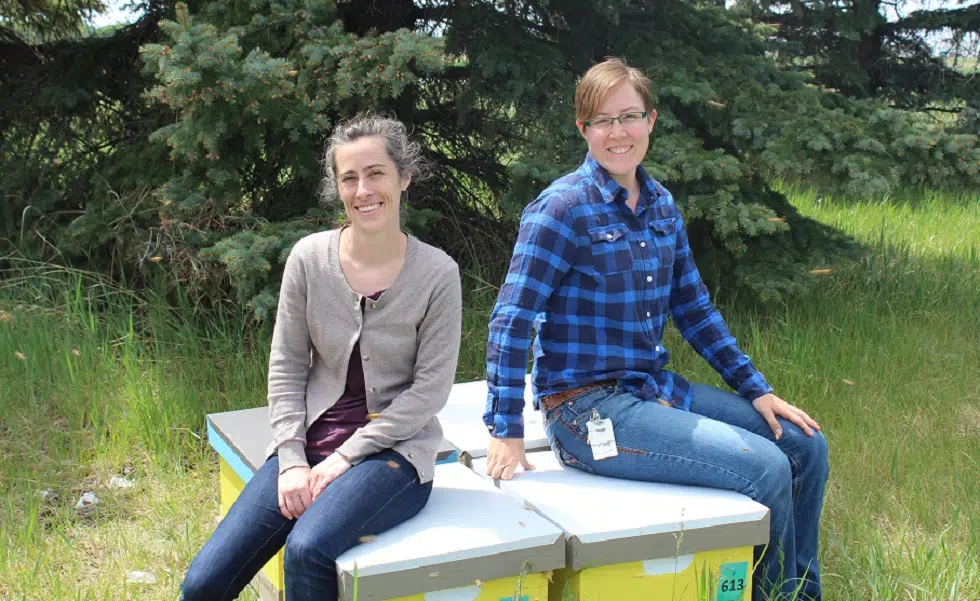
Lethbridge Research Centre Duo Participate in National Bee Breeding Study.
LETHBRIDGE: As you drive around Southern Alberta it would be difficult to miss the abundance of bee hives that are being situated in farm yards and and fields. Their appearance at this time of year is simple – the fuzzy, buzzing, winged creatures are crucial to pollination. Without their pollination work, canola and fruit crops would be at risk.
The importance of bees is so critical, that there are a number of studies looking into their sustainability.
Dr. Shelley Hoover, Agriculture Research Scientist and Lynae Ovinge, Apiculture Research Technician, both work at the Lethbridge Research and Development Centre and both know the ins and outs of bee pollination and bee health and behaviour.
Most recently, the two researchers contributed to a proof-of-concepts study that looked at using proteomic markers for selection of bee stocks, making for more efficient bee breeding.


